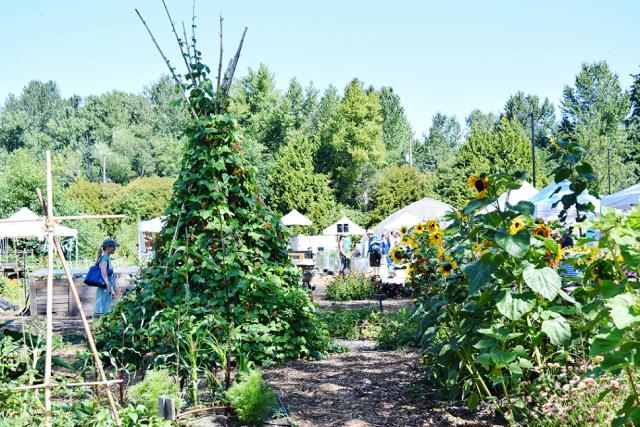EPA’s environmental education grants help Northwest communities spur ecological awareness and local stewardship
The U.S. Environmental Protection Agency, Region 10, is awarding $376,355 in environmental education grants to five organizations in Idaho and Washington to help students, teachers and community members boost their knowledge of science and increase their ecological awareness and stewardship.
“Environmental education is a key part of our mission to protect people and the environment, said EPA Region 10 Regional Administrator Chris Hladick.” EPA’s environmental education grants help communities explore environmental issues, engage in problem solving, and develop the skills to make informed and responsible decisions to address environmental challenges.”
Grants are being awarded to the following organizations (see photos below):
Friends of Teton River, in Idaho, will receive $82,900 to support the Teton County Farms and Fish Initiative. Friends of the Teton River, in partnership with Teton Soil Conservation District, Teton County Farm Bureau and Henry Fork’s Foundation, works with farmers, local leaders and Teton County residents. The program provides free classes, workshops, field visits, on-farm testing procedures, and knowledge-sharing conservation and water management. The project aims to use agricultural education to build community knowledge and skills to work collaboratively to conserve and protect water resources and aquatic ecosystems in the Teton River Watershed.
Oxbow Farm and Conservation Center in Carnation, Washington will receive $46,355 to expand an existing program for low income kindergartners to reach more students and institutionalize outdoor environmental education at Frank Wagner Elementary School. The "Garden Buddies" project will foster environmental learning between 100 fourth grade students mentoring 100 kindergarteners, provide professional development workshops for 24 teachers, and host community events using the school's outdoor classrooms. This project will also empower other elementary schools to routinely offer outdoor and garden-based environmental education on their own school grounds.
IslandWood in Seattle and Bainbridge Island, Washington will receive $84,700 to support the Urban Watershed Education Project. In partnership with King County Wastewater Treatment Division, IslandWood works with students in the third through eighth grade in King and Snohomish counties. The program aims to raise environmental awareness and improve skills and stewardship through hands-on watershed field studies in local schools and neighborhoods and student-led stewardship projects. Local teachers will also participate in professional development workshops to encourage best practices in experiential education, and the teachers will collaborate with community partners to develop environmental action projects for the students.
Nooksack Salmon Enhancement Association in Bellingham, Washington will receive $77,700 to support the Students for Salmon Program. In partnership with Bellingham Parks Department, Whatcom Conservation District, Sound Experience, Western Washington University, Washington Department of Fish and Wildlife, BP Inc., Whatcom Community Foundation and several local school districts, the program works with fourth grade students in Whatcom County schools. The multi-stage watershed education program includes learning both outdoors and classroom activities, to build students’ understanding of healthy salmon habitat. The field trips led by university interns provide students with the opportunity to conduct streamside restoration projects to improve conditions.
Tilth Alliance in Seattle, Washington will receive $84,700 to support an environmental education program at Rainier Beach Urban Farm & Wetlands. The Tilth Alliance, in partnership with South Shore K-8 School, Rainier Beach High School, Friends of Rainier Beach Urban Farm & Wetlands, Families of Color Seattle, Rainier Valley Food Bank, Bridges and Tiny Trees, works with families, teachers, children and underserved youth who want to improve the environment in their neighborhood. The project provides farm field trips and service-learning programs, youth employment opportunities, Garden Educator Workshops for teachers, and family environmental education events to learn about food systems, sustainable farming and community resiliency.
Find more information about EPA’s environmental education grants at: http://www2.epa.gov/education/environmental-education-ee-grants.
Learn more about EPA’s Pacific Northwest Region 10 at: EPA Region 10.
Follow EPA Region on Twitter at: @EPAnorthwest and on Facebook at: @eparegion10.
Photos (also available on request):





